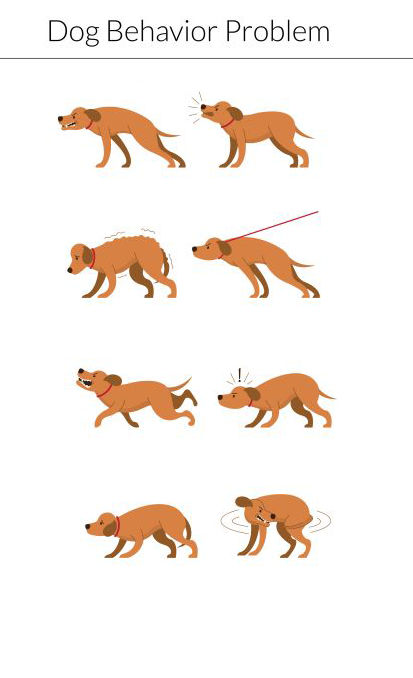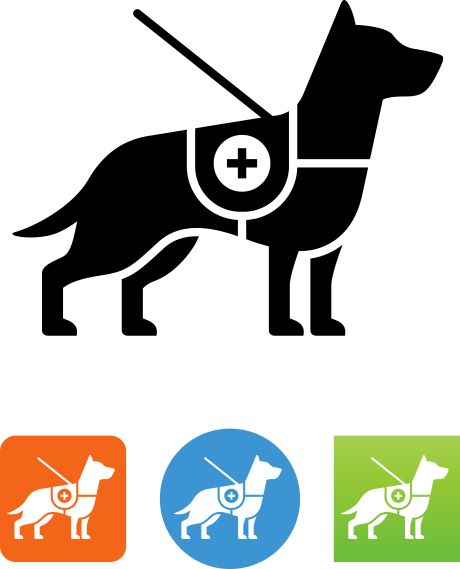Dog Training Frequently Asked Questions
Our dog training FAQ is meant to answer our most frequently asked questions. We tried, but we can’t get it all in on our website, so if you have additional questions, feel free to schedule an online consultation.
General Dog Training FAQ
Which dog training package is best for my dog?
Our dog training packages are divided up by age group. We have puppy training packages (less than 6 months) and adult dog training packages. Learn more about the fearful dog and the aggressive dog.
How frequently should we meet our dog trainer?
Time between dog training lessons depends upon the type of training we are practicing manners or performing behavior modification for fear, anxiety, stress, or aggression. We suggest aiming to meet with your trainer
- every 1 to 2 weeks for manners, and
- every 2 to 4 weeks for fear, anxiety, stress, and aggression.
How long will it take to train my dog?
Length of time to train your dog depends upon you, your dog, and your goals. In any one dog training lesson, we can cover 2-3 topics over the course of an hour. You may wish to have multiple lessons on one topic.
For a personalized discussion about your dog training needs, please sign up for a 30-minute online consultation in Calvert County or Denver with one of our senior dog trainers.
If your dog suffers from fear or aggression, he or she may require ongoing support and dedication from you. Some dog training and behavior problems have biological components that may never fully resolve, and dogs may be suffering from issues that never fully resolve. Our dog trainers can work with you to provide customized support.
Where do we meet for dog training?
Our dog trainers come to your home for dog training lessons so that we can see the exact situations that need to be trained.
Dogs don’t generalize dog training skills very well, so it’s important to practice the exact desired dog training behavior chain or sequence.
How do I decide on dog training methods? What is your approach?
There is general consensus in the veterinary and scientific communities about dog training techniques. Don’t just take our word for it!
For additional information on industry standards and best practices in dog training, please see our Dog Training Approach. Here you will find articles from industry professionals and professional organizations.
Is there anything we can do before our first dog training lesson?
Based on your dog training intake form, we may send you videos and literature about dog training to review in advance of our first lesson. Reviewing these dog training concepts in advance will leave us much more time for your specific training questions.
What about ongoing support?
Our packages are designed to get you started toward your dog training goals.
After one of our new client dog training packages, your trainer will discuss options for regular refresher or ongoing training. This includes dog training lessons or day training.

Behavior Modification for the Fearful Dog and the Aggressive Dog
Which dog training package is best for my fearful dog? for my aggressive dog?
For adult dogs with behavior, dog fear, or dog aggression challenges, we recommend checking out our pages on fearful dogs and aggressive dogs,
How frequently should we meet with our dog trainer for our fearful dog or for our aggressive dog?
How frequently you will meet with your dog trainer varies from case to case. We suggest aiming to meet with your dog trainer every 2 to 4 weeks for fearful dogs, anxious dogs, stressed dogs, and aggression behavior modification for dogs.
How long will it take to help my fearful dog or my aggressive dog?
Length of time for helping a fearful dog or an aggressive dog depends upon you, your dog, and your goals.
If your dog suffers from fear or aggression, he or she may require ongoing support and dedication from you. Some dog behavior challenges have biological components that may never fully resolve, and dogs may be suffering from issues that never fully resolve, though we can work with you to provide customized support.
Where do we meet with our dog trainer for fearful or aggressive dogs?
Our dog trainers come to your home so that we can see the exact situations and triggers that need to be addressed for the dog behavior modification plan.
What is the difference between dog behavior modification versus dog behavior suppression?
When your dog is lunging, barking, and carrying on, it can be annoying, frustrating, or even scary. We just want it to stop, and we want our dogs to feel better.
Your dog’s aggressive behavior is potentially a signal that he is having a really hard time. We work with you to help change their reaction to environmental triggers, or whatever sets them off. We teach you how to do it.
This type of change, a change to his emotional reactions, can take days, weeks, months, or longer. We exclusively use behavior modification and not behavior suppression.
Suppression of behavior will stop your dog’s naughty reactions, but that will not change the underlying reaction. Instead, your dog is still highly uncomfortable, but will not tell you, until it’s too late.
We focus on safety and management, behavioral health, and then we follow up with training!
What about ongoing support for our fearful dog or aggressive dog?
Our dog training packages are designed to get you started toward your dog training goals.
After one of our new client dog training packages, your trainer will discuss options for regular refresher or ongoing training. This includes dog training lessons or day training.
Is there anything we can do before our first dog training lesson?
Based on your dog training intake form, we may send you dog training videos and literature to review in advance of our first lesson, leaving us much more time for your specific training questions.
If you would like, you can learn more about our dog training approach and why it is embraced by veterinarians and leading professionals specifically to address behavior challenges.
What about dog behavior modification medications or anti-anxiety medications?
In the event that, during our first dog training lesson, we cannot find a way to get your dog under threshold, we may suggest that you seek veterinary oversight in conjunction with our dog training. If so, we’ll set an additional replacement appointment afterwards, at no additional charge.
What is a veterinary behaviorist?
A veterinary behaviorist is a veterinarian who has been licensed by the state who also has a board certification in behavior.
The American Veterinary Society of Animal Behavior has published position statements on a variety of topics related to the field of animal behavior. These include:
Positive Vet Visit Position Statement
Dominance Position Statement
Punishment Position Statement
Puppy Socialization Position Statement
How to Choose a Trainer Handout
Breed Specific Legislation Position Statement
AVSAB Response Statement to Cesar 911

Service, Therapy, and Emotional Support Dogs
Which package is best for my dog?
For an adult dog, please start with a 2-lesson dog training package in North Calvert, South Calvert. We focus solely on manners and public access for adolescent dogs and puppies. We offer puppy training packages for puppies less than 6 months old.
Adults with behavior, fear, or aggression challenges, we recommend starting with a package specifically designed to address fearful dogs or aggressive dogs. Know that public access is important for Service and Therapy dogs and a dog with behavior challenges may not be suitable.
How frequently should we meet to train a service, therapy, or emotional support dog?
How frequently we meet depends upon if we are training manners or if we are working on public access. We suggest aiming to meet with your trainer
- every 1 to 2 weeks for service dog tasks or good manners, and
- every 1 to 3 weeks for public access.
How long will it take to train my service, therapy, or emotional support dog?
From a puppy, it takes a minimum of 2 years to train a service dog or therapy dog. A one-year-old dog with basic training skills may take only a year to train for the service dog tasks you seek. Adult dogs may take longer to obtain the public access skills. Emotional support animals depend upon your personal goals.
Where do we meet?
We come to your home or meet you out in the real world, so that we can see the exact situations that need to be trained. Dogs don’t generalize skills very well, so it’s important to practice the exact desired behavior chain or sequence.
Can you help me train my service dog?
Yes, we provide coaching and support for owner trained service dogs. We take public safety, your safety, your needs, and your time commitment seriously. That is why we just stick with what you need. We don’t offer any superfluous certifications not required by Colorado, Maryland, or Federal law.
We focus first on public access, and truthfully help you to assess if your dog is going to be comfortable in the many situations that can come up out in public. As we do that, we start developing the service dog skills that you need!
From puppy, training a confident and reliable service dog can take 2 years or more. Adult dogs may require more training. We can help you every step of the way!
Can you help me with therapy dog training?
Yes, we can! A therapy dog is a happy guy or gal who visits hospitals, schools, nursing homes, and other locations.
Our therapy dog program aligns with nationally recognized best practices, which have a heavy emphasis on socialization, good manners, and positive reinforcement training.
We prepare you to take the tests for national organizations such as The Alliance of Therapy Dogs or organizations regional to Maryland like Wag Workshops Therapy Dog Network or Pets on Wheels.
What is the difference between a service, therapy, and emotional support dog?
Please check out this 10-minute webinar from the Southern Maryland nonprofit organization Wag Workshops about Service, Therapy, and Emotional Support Animals.
Where can I get more information about service dog laws?
For Federal regulations, please reach out to the ADA Information Line

How to contact us:
Do you want to know more about how this applied to your dog, your home, and your family? Please click the button below for an online consultation.


